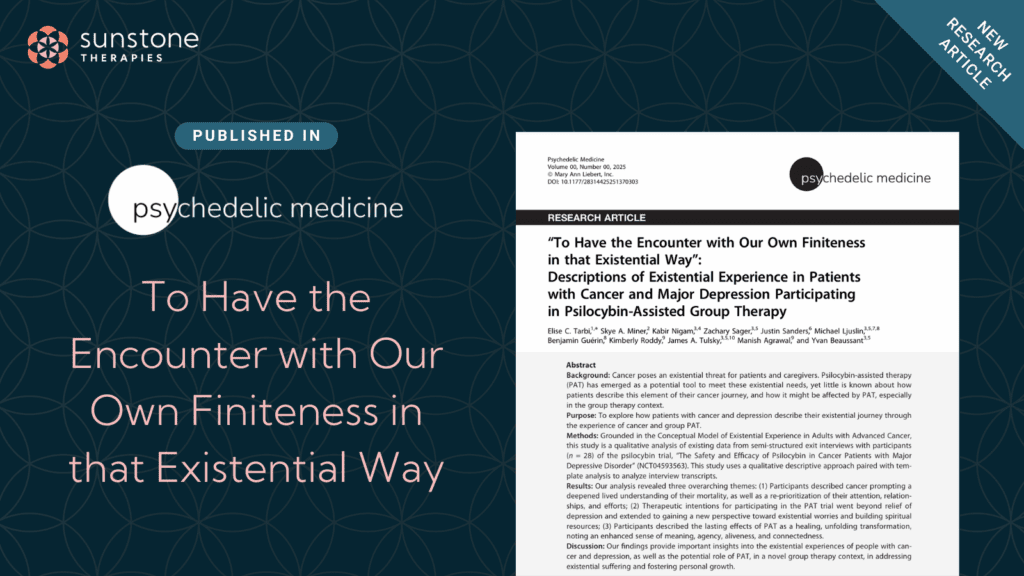By Keridwen Cornelius, featuring insights from CEO Dr. Manish Agrawal
As medicine reckons with its limitations in addressing the emotional and existential suffering of patients facing terminal illness, a new frontier is emerging at the intersection of oncology, mental health, and psychedelics. Dr. Manish Agrawal and his team at Sunstone Therapies are at the forefront of this transformation, pioneering clinical research into psilocybin-assisted therapy for people with advanced cancer.
Their work signals a paradigm shift in end-of-life care—moving beyond symptom management to embrace a model that treats the whole person, including the psychological and spiritual dimensions of dying. Early trial results are promising, showing that a single guided psilocybin session can dramatically reduce depression and existential distress in terminal patients, helping them reframe their experience and reclaim a sense of agency.
This effort is part of a larger movement to redefine how we approach death and healing in modern medicine. While regulatory and systemic barriers remain, Sunstone’s research is laying the groundwork for integrating psychedelic therapy into mainstream cancer care—offering not just a new treatment modality, but a new philosophy of care: one rooted in compassion, presence, and the potential for deep inner healing, even at life’s end.
These outcomes underscore the potential of psilocybin not as a cure, but as a catalyst for psychological and spiritual healing. As Dr. Agrawal puts it, “It doesn’t take away your problems. It’s meant to shift the lens on your thinking, and that causes growth.”


